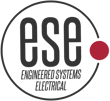
When you’re selecting an installer of electrical distribution equipment, it’s vital to balance safety with cost. On one hand, you mustn’t opt for the lowest price team for the installation as you risk the system being unsafe or providing substandard performance, but it’s also important not to overstretch your budget when you could achieve better results for a more competitive price.
In this article, we’ll outline the five key considerations to weigh when choosing your electrical distribution installers for your next commercial electrical distribution project.
1. Technical Expertise
In electrical distribution design and installation, safety is paramount. Every aspect of a turnkey project should be meticulously planned and delivered to eradicate the risk of component failure, electrical shorts, and fire. Choosing a supplier who has earned Independent Connection Provider (ICP) Accreditation, has extensive experience in installing high-voltage electrical distribution equipment, and abides by current regulations will ensure that the project is completed correctly and safely.
2. Equipment Quality
The electrical component market is flooded with inferior parts that offer poor resilience and durability and fail to comply with current industry standards. These will increase the likelihood of system failure and could also pose a significant safety risk. Make sure that your chosen installer uses equipment that is manufactured by reputable suppliers that abide strictly by the latest electrical safety regulations.
3. Service And Support
Once the electrical installation is complete, you will need the reassurance that, should an issue arise, you will have immediate access to an expert – rather than being cast adrift with a problem you cannot solve. A reputable electrical installer will offer ongoing aftersales service, maintenance, and repairs as part of your preventive maintenance strategy so that any emerging problems are identified and resolved before they cause major issues.
4. Price And Cost-Efficiency
Price should always be a factor you consider when choosing an electrical installer – but it shouldn’t be the only factor in your decision-making. For long-term performance and safety, you need high-quality equipment, design, installation, and support, so bear in mind that a supplier who offers the Earth for a low price will most likely be taking shortcuts somewhere to save money.
5. References And Testimonials
One of the most informative ways of learning about an electrical installer’s competence is to ask for references and feedback from their other customers. The installer should, if they have confidence in their work, be prepared to put you in touch with previous clients and actively encourage you to seek recommendations.
Contact ESE Ltd To Find Out More
At ESE Ltd, we specialise in complete turnkey electrical infrastructure installations up to 66,000 Volts and take pride in the quality of our service and support for customers. To find out more, please get in touch with one of our team today.

Image Source: Pexels
Posts By Topics
- general (61)
- Expert Electrical Contractors (9)
- Case Studies (8)
- High-Voltage Equipment Maintenance (8)
- Electrical Distribution Equipment (6)
- High Voltage (4)
- High Voltage Electrical Safety (3)
- High-Voltage Switchgear (2)
- Independent Connection Provider (2)
- Engineered Systems (Electrical) Ltd (1)
